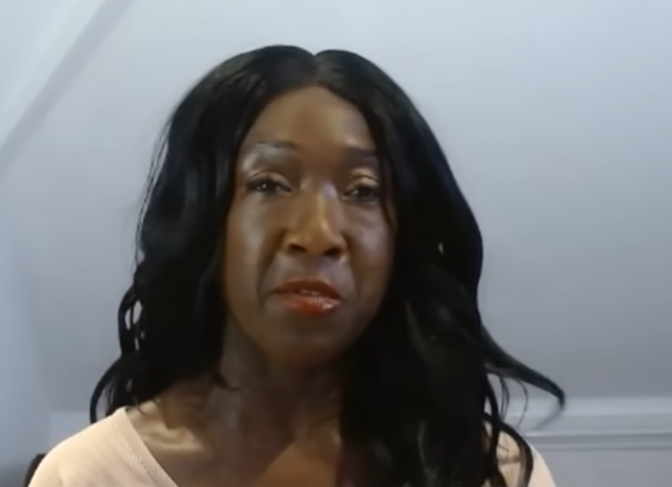This Must Stop: Nana Akua Expressed Her Strong Opposition To Being Labeled as “Not a Real Black Person” (Video)

In a recent interview, Nana Akua, a prominent figure known for her anti-woke views, expressed her strong opposition to being labeled as “not a real black person” due to her stance. Speaking out against what she perceives as a flawed ideology, she criticized the notion that individuals must be defined by their race and subjected to predetermined narratives.
One of the key points raised by Nana Akua was the concept of white privilege. She argued that the assumption of inherent privilege solely based on skin color is problematic and perpetuates a victim mentality among black individuals. Nana Akua voiced her concerns about critical race theory, highlighting its tendency to portray black people as perpetual victims, a notion she finds deeply offensive.
“It puts me on the back foot,” she explained. “Accepting the narrative that I am a victim is not acceptable in any way. I don’t believe I should immediately think I’m a victim just because of the color of my skin. It’s a divisive ideology.”
Nana Akua went on to address the issue of racism, challenging the common belief that only white people can be racist. She argued that racism can be perpetrated by individuals of any race, emphasizing that black people can be racist towards each other, just as white people can be racist towards one another.
Highlighting a specific example from Scotland, Nana Akua pointed out the way in which some members of the Scottish National Party (SMP) have treated individuals of English descent. Despite being of the same race, these instances demonstrate that racism is not limited to skin color but stems from divisive mindsets.
According to Nana Akua, society should embrace the idea that we are all part of the human race, transcending racial divisions. She voiced her belief that racism is a construct that serves no purpose other than to sow discord and prejudice. Refuting stereotypes, she emphasized that one’s behavior cannot be presumed solely based on the color of their skin.
Nana Akua further criticized the concept of racially exclusive events, emphasizing that they set a dangerous precedent. She argued that the acceptance of one-day-only racial exclusivity, even if intended as a counterbalance, would be equally unacceptable if the situation were reversed. Nana Akua believes such practices only fuel further division and hinder progress towards a unified society.




